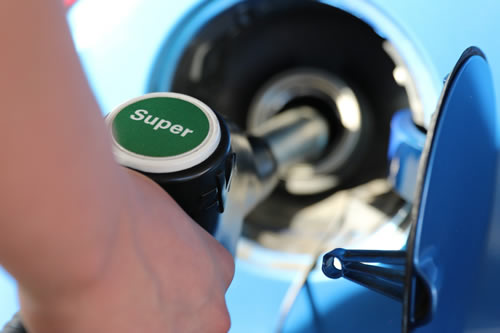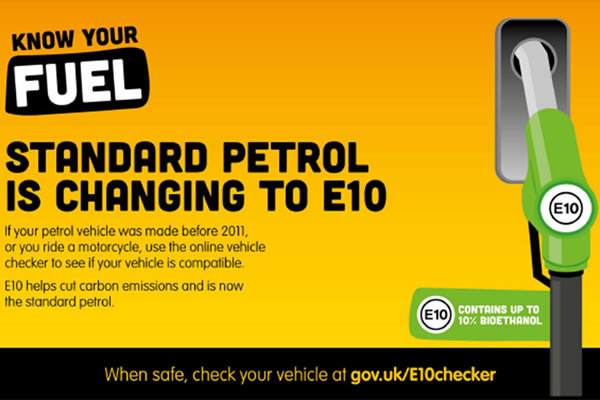In light of the announcement that E10 fuel will be sold in forecourts in the UK from the 1st September, we’ve had many queries from customers asking if their mower engine can run on E10. From September, E10 fuel will be your standard unleaded, whilst E5 will still be available at larger filling stations, it will be more expensive and under the ‘super’ grade pump.
Thank you for reading this post, don't forget to subscribe!
In 2019 we wrote a blog explaining why we recommend fuel additives. At the time we were discussing the damage that E5 fuel can cause to your small petrol mower engine. Our advice on using fuel that contains ethanol still stands, whether you are using E5 or the new E10 we recommend using a fuel stabiliser. Read more about it in our informative blog Why we recommend fuel additives.

We fill up and use the fuel in our cars on a regular basis, whereas our lawnmowers and garden machinery will sit around with fuel left in them until we next use them. E5 has 5% ethanol and E10 10%, ethanol is hygroscopic which basically means it naturally attracts and absorbs any moisture in the air. When you add fuel that contains ethanol E5/E10 to your fuel tank, any moisture in the air inside a fuel tank will mix with the ethanol in the fuel which eventually results in water and ethanol being sucked through into the fuel system causing components to deteriorate and engine starting/running problems. As we highlight in our blog, 2-stroke engines are catastrophically affected by ethanol in fuel. A fuel/oil mix is required to run a 2-stroke engine as they do not have a specific lubrication system. The water created when petrol deteriorates then mixes with the oil, this separation produces a heterogeneous mixture and results in the oil not bonding to the engines metal components and without lubrication the engine will rust, rub and wear. In conclusion, ethanol causes multiple problems for small petrol engines and you shouldn’t leave it in the tank.
John Deere has announced their engines have been compatible with E10 fuel since the 1980’s, read more here.
Hayter have released a statement detailing the models that are compatible with E10
Year Engine Brand
2000 Hayter, Toro, Briggs and Stratton, Honda
2011 Kawasaki
2020 Kohler
Briggs & Stratton have also released a statement that their overhead-valve and side-valve engines can both use up to, and including, 10% ethanol petrol. Briggs and Stratton are also recommending using their fuel stabiliser Fuel Fit and the dosage should be increased by 25% for E10 petrol.
Fuel additives or stabilisers do not remove ethanol from petrol, they contain corrosion inhibitors which form a protective barrier on metal parts, they include detergent ingredients to prevent gum and varnish build-up on engine parts and metal de-activators which stop chemical reactions caused by dissolved metals in fuel. 250ml will treat 25 litres of E5 fuel and keep it fresh for up to 3 years. Considering the statement from Briggs and Stratton, E10 will require the quantity of fuel stabiliser to be increase by 25% equaling approximately 312ml of fuel additive per 25 litres of petrol.
Our No. 1 choice of fuel stabiliser is Briggs and Stratton Fuel Fit available in other sizes and quantities.
Click HERE for our full range of fuel stabilisers and similar products.

For more guidance on E10 visit https://www.gov.uk/guidance/e10-petrol-explained
Read our blog WHY WE RECOMMEND FUEL ADDITIVES
